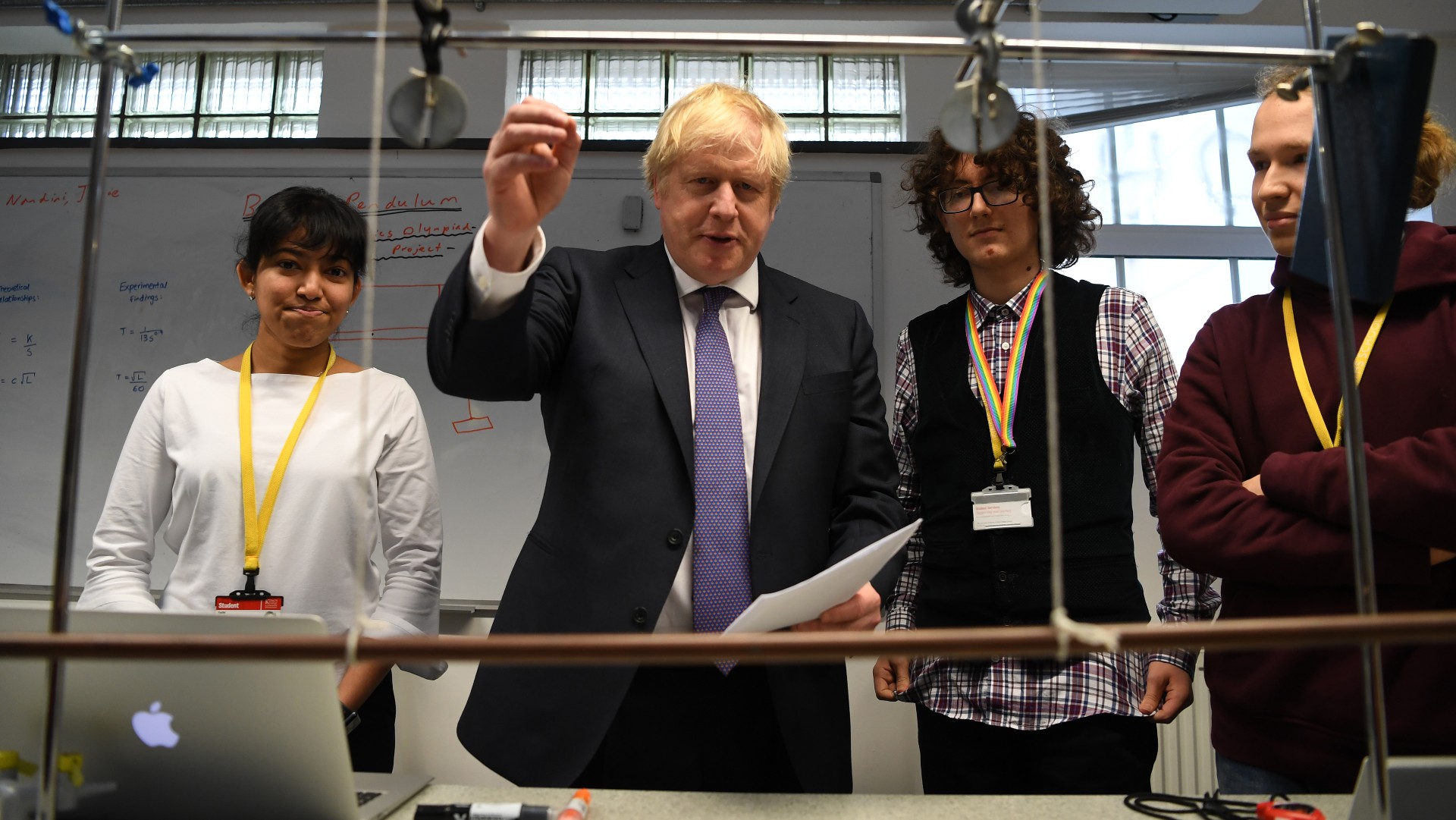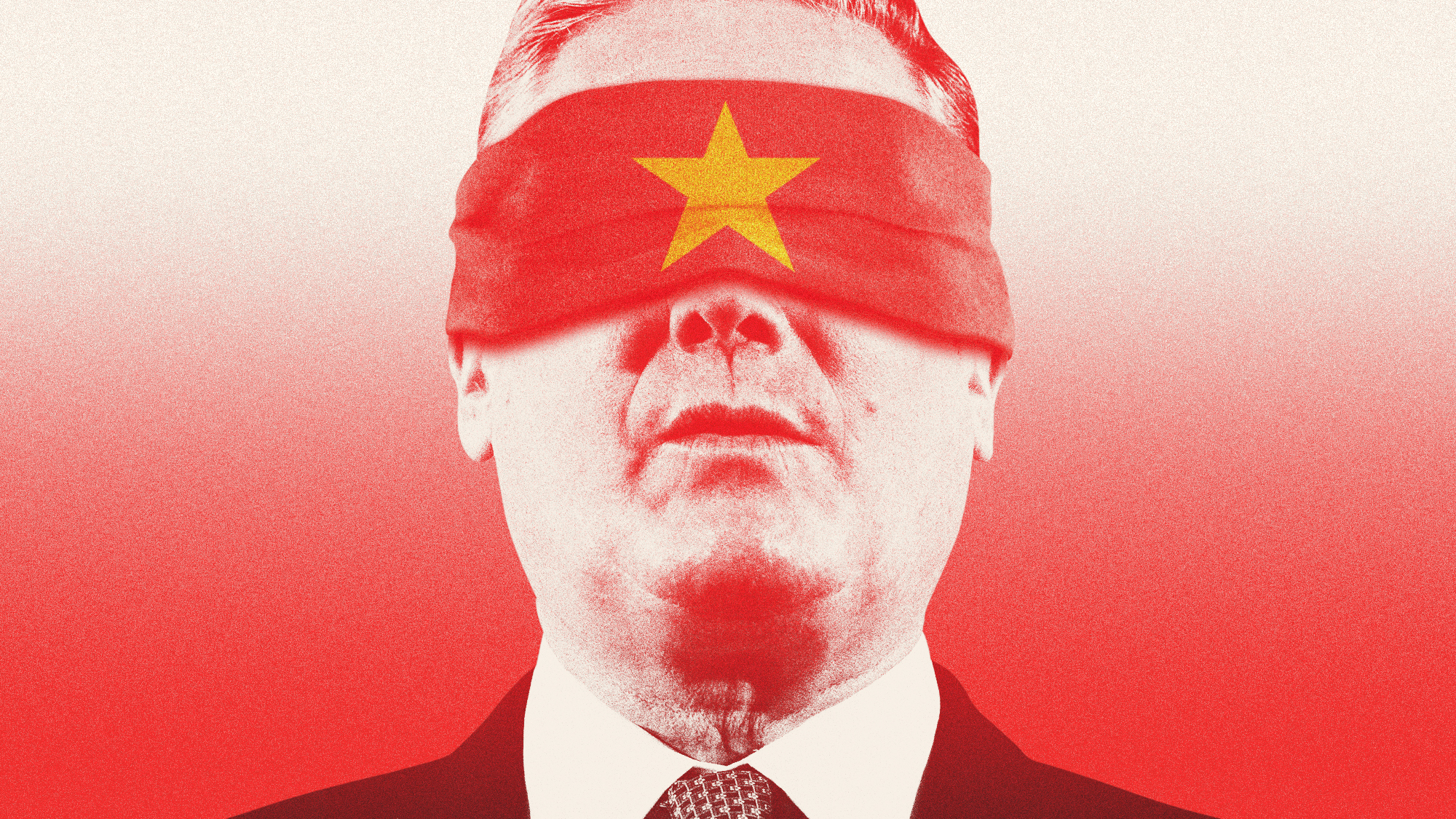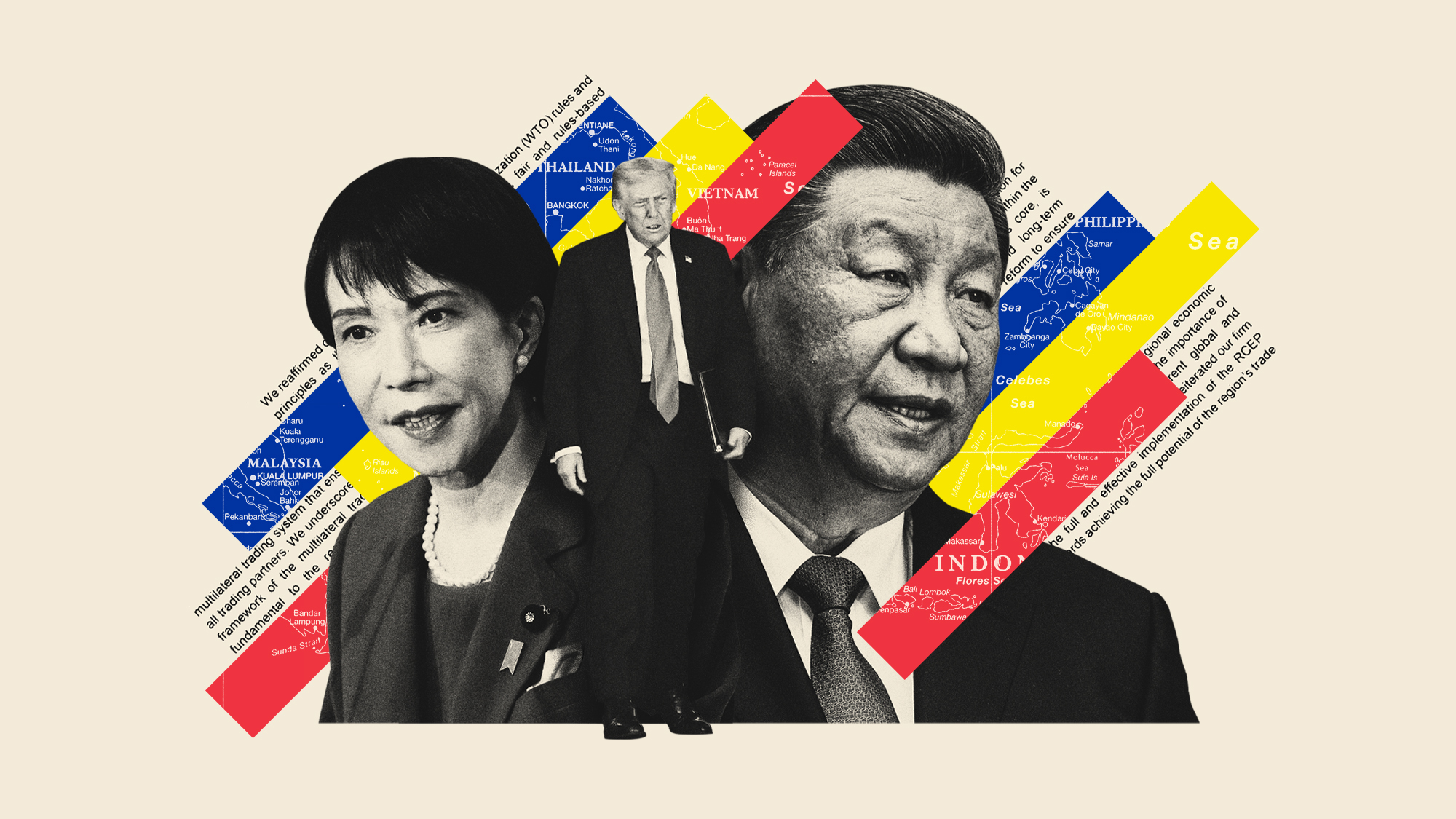‘Boris Johnson is blaming the young for his own misjudgements’
Your digest of analysis and commentary from the British and international press

- 1. Boris Johnson is ‘raging’ at young people over the vaccine uptake – but this is a mess of his own making
- 2. China’s population crisis needs more help than just scrapping fines for having too many children
- 3. British broadcasters are rightly celebrating the Olympics and Paralympics as part of one great sport festival
- 4. We’re kidding ourselves that workers perform well from home
- 5. Holey leaves? They’re the bee’s knees
A free daily email with the biggest news stories of the day – and the best features from TheWeek.com
You are now subscribed
Your newsletter sign-up was successful
1. Boris Johnson is ‘raging’ at young people over the vaccine uptake – but this is a mess of his own making
Sean O’Grady for The Independent
on diverting criticism
Boris Johnson is a “funny fellow”, writes Sean O’Grady in The Independent. “He relaxes ‘lockdown’ too rapidly and too soon” and then “starts ‘raging’, as the newspapers report, because not enough young folk have gotten round to having a jab, let alone getting double dosed”. It wasn’t long ago that young people were “being praised as a sensible and conscientious generation”, but now they’re enraging the prime minister so much “he wants to make them show vaccine passports to get into nightclubs or go to university lectures”. These “harsh measures” might have been necessary at some point, adds O’Grady, but it was Johnson’s own misjudgement to end most of the final Covid precautions “before the vaccination programme was practically complete”. Now students and teenagers “are being blamed by the government” for the relatively low vaccine uptake among the under-30s. By over-hyping “so-called ‘freedom day’”, the government created a false “post-Covid” atmosphere, O’Grady says, and are now facing the consequences.
The Week
Escape your echo chamber. Get the facts behind the news, plus analysis from multiple perspectives.

Sign up for The Week's Free Newsletters
From our morning news briefing to a weekly Good News Newsletter, get the best of The Week delivered directly to your inbox.
From our morning news briefing to a weekly Good News Newsletter, get the best of The Week delivered directly to your inbox.
2. China’s population crisis needs more help than just scrapping fines for having too many children
Zhou Xin for the South China Morning Post
on birth rates
Officials announced last week that families in China “no longer have to worry about being fined or being hit with other consequences for having additional children”, writes Zhou Xin in the South China Morning Post. The move came after the country introduced a three-child policy in May 2021 with the aim of tackling China’s “plunging birth rate and shrinking labour force”. This is a “good move”. But, says Xin, the government needs to do more than just remove punishments. “The real costly and challenging part is to introduce incentives” to encourage the country’s couples – many of whom “grew up as an only child” – to have more children. “Japan, South Korea and Taiwan have tried for years, if not decades, but the results have not been satisfactory.” Beijing needs to work hard to address its population crisis.
A free daily email with the biggest news stories of the day – and the best features from TheWeek.com
3. British broadcasters are rightly celebrating the Olympics and Paralympics as part of one great sport festival
Ian Burrell for the i news site
on broadcasting the Paralympics
The UK “deserves an extra gold medal” for our broadcasters’ recognition that now is the time to “celebrate the athletic greatness of both the able-bodied and the disabled”, writes Ian Burrell for the i news site. The BBC’s selection of JJ Chalmers, the disabled athlete and television host, in its Olympics presenting team alongside Clare Balding and Jessica Ennis-Hill “is sending a signal that the Olympics and Paralympics are part of one great festival of sport”. After the Olympics, Chalmers will join Channel 4’s team to cover next month’s Paralympics, Burrell adds. He has “pioneered a path from disability sport to the Olympics”, and media and governing bodies of mainstream sports “should take heed of his example”.
4. We’re kidding ourselves that workers perform well from home
John Zavitsanos for The New York Times
on returning to the office
In March, John Zavitsanos, the co-founder of litigation boutique Ahmad, Zavitsanos, Anaipakos, Alavi & Mensing, and his partners paid “special bonuses” to all employees to reward them for their “record-breaking work in 2020”. Work they carried out not on Zoom together, but in actual real life together, he writes in The New York Times. When the pandemic struck the US in March 2020, Zavitsanos closed the office “along with most other city businesses”, but decided to reopen just five weeks later. “While lawyers at other Houston law firms claimed to be happy with remote work, I believe it prevented us from performing at our sharpest,” he says. The decision to reopen paid off, Zavitsanos writes. In 2020, the company’s revenue grew by 39% and it was never forced to cut staff or salaries. “Our choice to reopen was not without consequence”, he adds, but “as the year wore on, it became clear to me that ambitious lawyers at firms like ours simply couldn’t thrive in a virtual setting”.
5. Holey leaves? They’re the bee’s knees
Isabel Hardman for the London Evening Standard
on the wonders of nature
You’re probably familiar with “plants with leaves chomped into postage stamp edges”, writes Isabel Hardman, assistant editor of the Spectator and author of The Natural Health Service, in the London Evening Standard. “Those perforations are appearing now as leaf-cutter bees build nests.” The female bees “bite little chunks in foliage” which they then carry to the hole “where they’ll lay their eggs”. “Some gardeners get upset and worried when they find leaf-cutter bite marks on their roses and other prized plants”, says Hardman. “But there is no need to worry as they do no harm, merely making the garden just a little bit more ornate and interesting.” Reframe the way you see nature “as a thing of wonder, rather than something to be sprayed and controlled into sad submission” by appreciating and making the most of your postage-stamp leaves.
-
 Film reviews: ‘Send Help’ and ‘Private Life’
Film reviews: ‘Send Help’ and ‘Private Life’Feature An office doormat is stranded alone with her awful boss and a frazzled therapist turns amateur murder investigator
-
 Movies to watch in February
Movies to watch in Februarythe week recommends Time travelers, multiverse hoppers and an Iraqi parable highlight this month’s offerings during the depths of winter
-
 ICE’s facial scanning is the tip of the surveillance iceberg
ICE’s facial scanning is the tip of the surveillance icebergIN THE SPOTLIGHT Federal troops are increasingly turning to high-tech tracking tools that push the boundaries of personal privacy
-
 The high street: Britain’s next political battleground?
The high street: Britain’s next political battleground?In the Spotlight Mass closure of shops and influx of organised crime are fuelling voter anger, and offer an opening for Reform UK
-
 Is Keir Starmer being hoodwinked by China?
Is Keir Starmer being hoodwinked by China?Today's Big Question PM’s attempt to separate politics and security from trade and business is ‘naïve’
-
 Is a Reform-Tory pact becoming more likely?
Is a Reform-Tory pact becoming more likely?Today’s Big Question Nigel Farage’s party is ahead in the polls but still falls well short of a Commons majority, while Conservatives are still losing MPs to Reform
-
 Asylum hotels: everything you need to know
Asylum hotels: everything you need to knowThe Explainer Using hotels to house asylum seekers has proved extremely unpopular. Why, and what can the government do about it?
-
 Donald Trump’s week in Asia: can he shift power away from China?
Donald Trump’s week in Asia: can he shift power away from China?Today's Big Question US president’s whirlwind week of diplomacy aims to bolster economic ties and de-escalate trade war with China
-
 Taking the low road: why the SNP is still standing strong
Taking the low road: why the SNP is still standing strongTalking Point Party is on track for a fifth consecutive victory in May’s Holyrood election, despite controversies and plummeting support
-
 Behind the ‘Boriswave’: Farage plans to scrap indefinite leave to remain
Behind the ‘Boriswave’: Farage plans to scrap indefinite leave to remainThe Explainer The problem of the post-Brexit immigration surge – and Reform’s radical solution
-
 What difference will the 'historic' UK-Germany treaty make?
What difference will the 'historic' UK-Germany treaty make?Today's Big Question Europe's two biggest economies sign first treaty since WWII, underscoring 'triangle alliance' with France amid growing Russian threat and US distance